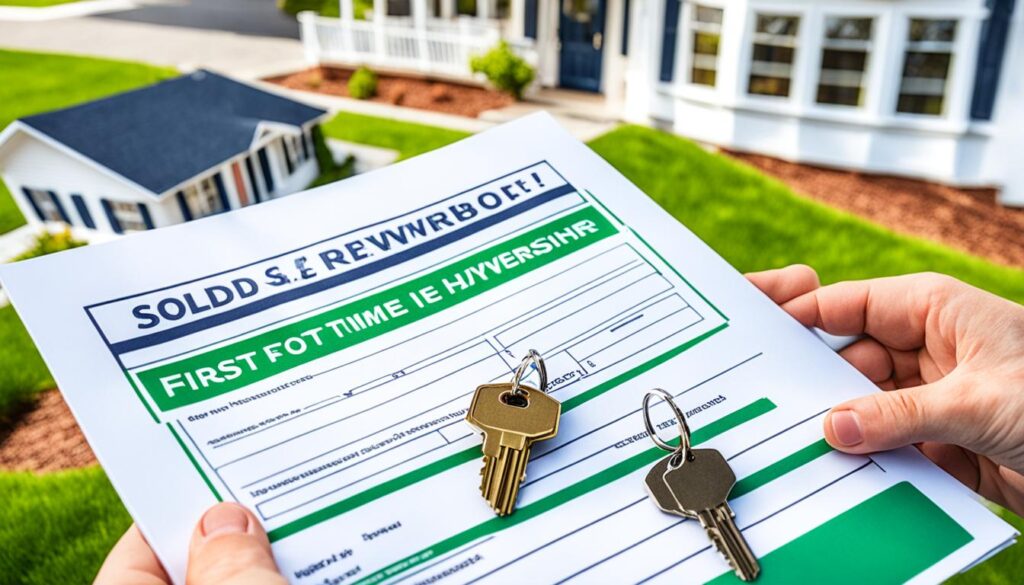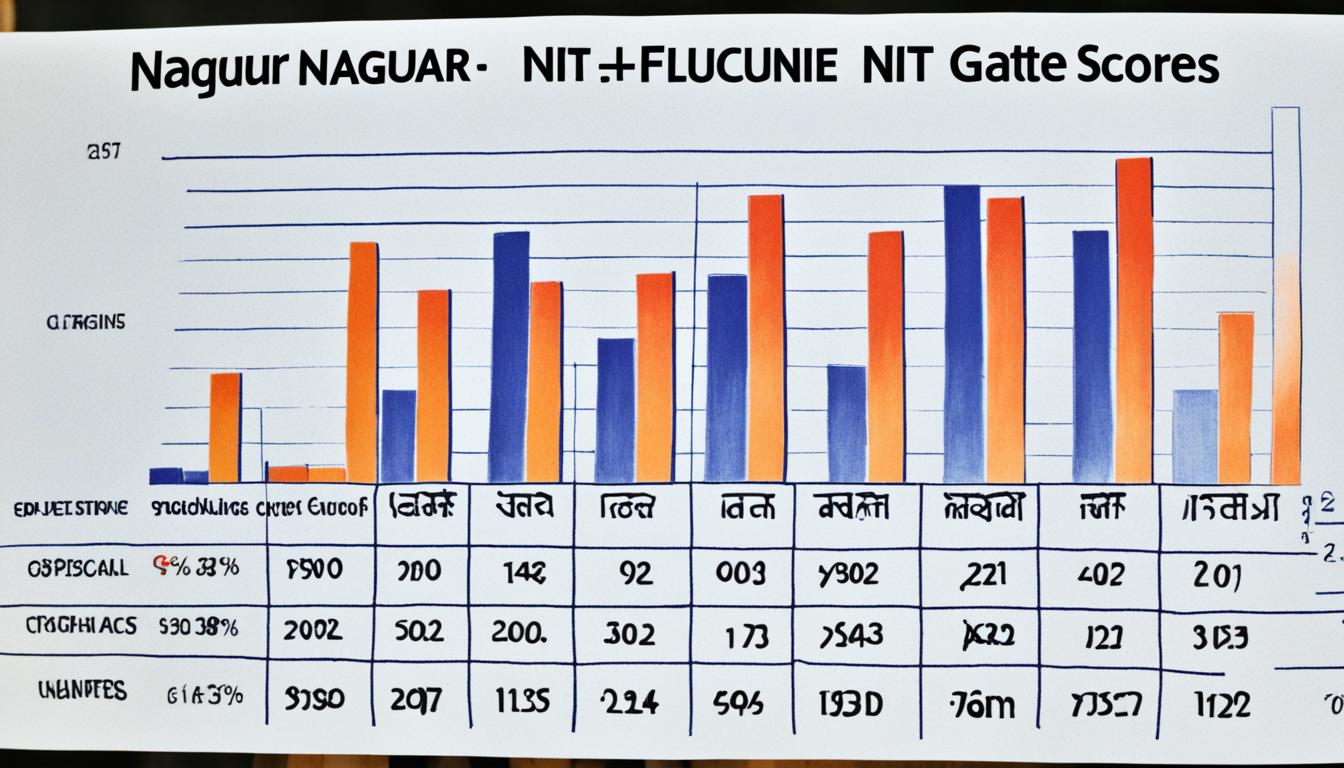Welcome to our comprehensive guide on the $25,000 first-time home buyer grant application process. If you’re a first-time home buyer looking for financial assistance to make your dream of homeownership a reality, you’re in the right place. In this guide, we will walk you through the application process, discuss the eligibility criteria, and provide valuable tips to help you successfully navigate the journey.
Key Takeaways:
- Understanding the application process for the $25,000 first-time home buyer grant
- Learning about the eligibility criteria to qualify for the grant
- Gaining valuable tips to navigate the home buying journey successfully
- Exploring additional financial aid options available
- Tackling common challenges and roadblocks faced by first-time home buyers
Understanding First-Time Home Buyer Grants
Before diving into the application process, it’s important to understand what first-time home buyer grants are. These grants are government-funded programs designed to assist individuals who are purchasing a home for the first time. They provide financial support to help offset the costs associated with buying a home, such as down payments, closing costs, and mortgage fees.
First-time home buyer grants are available at the federal, state, and local levels, with each offering different opportunities and eligibility requirements. These grants are typically offered as part of larger assistance programs aimed at increasing homeownership rates and promoting affordability in the housing market.
Government grants for first-time home buyers can provide invaluable financial assistance, making homeownership more achievable for those who may not have otherwise been able to afford it. By taking advantage of these grants, first-time home buyers can secure their dream home and set the foundation for future financial stability.
Types of First-Time Home Buyer Grants and Assistance Programs
There are various types of government grants and assistance programs available to first-time home buyers. Some of the most common ones include:
- Federal Housing Administration (FHA) Loans: These loans are insured by the FHA and offer low down payment requirements, making them an attractive option for first-time buyers with limited funds.
- USDA Rural Development Loans: Aimed at individuals looking to purchase homes in rural areas, these loans offer 100% financing and have relaxed credit score requirements.
- Department of Veterans Affairs (VA) Loans: These loans are available exclusively to military veterans, active-duty service members, and eligible surviving spouses. They offer favorable terms, including no down payment and competitive interest rates.
- State and Local Grants: Many states and local governments offer their own grants and assistance programs to help first-time home buyers. These programs vary by location and may include down payment assistance, closing cost assistance, and tax credits.
It’s crucial to research and understand the specific grants and assistance programs available in your area, as eligibility criteria and benefits may vary. Consulting with a mortgage professional or housing counselor can also provide valuable guidance and information about the options available to you.
First-time home buyer grants and assistance programs can significantly ease the financial burden of purchasing a home. By leveraging these resources, individuals can realize their homeownership dreams and establish a solid foundation for their future.
| Types of First-Time Home Buyer Grants | Eligibility Criteria | Benefits |
|---|---|---|
| Federal Housing Administration (FHA) Loans | First-time home buyers with a minimum credit score of 580 and a down payment of 3.5%. | – Low down payment requirements – Allows for a lower credit score compared to conventional loans – Fixed or adjustable interest rates |
| USDA Rural Development Loans | First-time home buyers looking to purchase homes in eligible rural areas. Must meet income and credit requirements. | – 100% financing – No down payment required – Low interest rates – No mortgage insurance required |
| Department of Veterans Affairs (VA) Loans | Military veterans, active-duty service members, and eligible surviving spouses. | – No down payment required – Competitive interest rates – No private mortgage insurance (PMI) required |
| State and Local Grants | Varies by location. Typically based on income, credit score, and property location. | – Down payment assistance – Closing cost assistance – Tax credits |
Qualifications for the First-Time Home Buyer Grant
To be eligible for the $25,000 first-time home buyer grant, you must meet specific qualifications. Let’s dive into the criteria that need to be fulfilled:
- Income Limitations: There are income limitations that determine eligibility for the grant. These limitations vary depending on factors such as household size, location, and the current housing market. It is essential to check the income thresholds established by the grant program to ensure you meet the requirements.
- Credit Score Requirements: A good credit score is crucial when applying for the first-time home buyer grant. Lenders and grant programs typically look for a credit score of at least 620 to demonstrate your ability to manage financial obligations responsibly. However, it’s important to note that credit score requirements may vary, so make sure to review the specific guidelines for the grant you’re applying for.
- Property Type Restrictions: The first-time home buyer grant may have specific property type restrictions. These restrictions can include limitations on the property’s location, size, or condition. Some grants may only apply to single-family homes, while others may allow for condominiums or townhouses. It’s important to understand these restrictions to ensure the property you plan to purchase aligns with the grant’s guidelines.
Meeting these qualifications is essential to qualify for the first-time home buyer grant. Understanding the income limitations, credit score requirements, and property type restrictions will help you determine your eligibility and make informed decisions during the application process.
“Owning a home is a keystone of wealth – both financial affluence and emotional security.” – Suze Orman
How to Apply for the First-Time Home Buyer Grant
Now that you understand the qualifications for the first-time home buyer grant, let’s dive into the application process. Follow this step-by-step guide to ensure a smooth and successful application.
- Gather the required documents:
- Proof of identity: This could include a driver’s license, passport, or social security card.
- Proof of income: Provide documentation such as pay stubs, tax returns, or bank statements to verify your income.
- Proof of residency: Show proof of your current address, such as utility bills or a lease agreement.
- Proof of employment: Submit documentation that confirms your employment status, such as employment contracts or letters from your employer.
Fill out the application form for the first-time home buyer grant accurately and thoroughly. Be sure to provide all requested information, including personal details, financial information, and property details. Double-check your information before submitting to avoid any delays or rejections.
Once you have completed the application form and gathered all the necessary documents, submit your application to the appropriate agency. Make sure to follow the specified submission instructions and keep copies of all submitted documents for your records.
Remember, it’s important to read and understand the instructions provided by the grant program thoroughly. By submitting a complete and well-prepared application, you increase your chances of being considered for the first-time home buyer grant.
“Applying for the first-time home buyer grant can be a bit overwhelming, but don’t let that discourage you. Take your time, gather all the required documents, and make sure to submit a complete application. It’s an exciting opportunity to secure financial assistance on your journey to homeownership.”
Tips for First-Time Home Buyers
Buying your first home can be an overwhelming experience. As a first-time home buyer, it’s important to be well-prepared and informed. We’ve put together a list of valuable tips to help you navigate the process smoothly and make informed decisions. From understanding the housing market to securing financing, these tips will empower you throughout your home buying journey.
1. Research the Housing Market
Before diving into the home buying process, take the time to research the housing market in your desired area. Look for information on current property prices, market trends, and neighborhood developments. This knowledge will help you gauge whether it’s the right time to buy and negotiate better deals with sellers.
2. Set a Realistic Budget
One of the most important tips for first-time home buyers is to set a realistic budget. Determine how much you can comfortably afford for monthly mortgage payments, taking into account other monthly expenses such as utilities, insurance, and maintenance costs. Use online mortgage calculators to estimate your affordability and explore different financing options.
3. Get Pre-Approved for a Mortgage
Before you start house hunting, get pre-approved for a mortgage. This will give you a clear idea of your borrowing capacity and will help you narrow down your options to homes within your price range. Pre-approval also demonstrates to sellers that you are serious and qualified, increasing your chances of securing your dream home.
4. Work with an Experienced Real Estate Agent
First-time home buyers can benefit greatly from the expertise of a seasoned real estate agent. An experienced agent can guide you through the entire process, provide valuable insights, and help you find the right home that fits your needs and budget. Look for agents who specialize in first-time home buyers to ensure they understand your specific requirements.
Pro tip: Don’t hesitate to ask questions! Your real estate agent is there to support you and provide the answers you need.
5. Arrange a Home Inspection
Once you’ve found a home you’re interested in, it’s crucial to arrange a professional home inspection. A thorough inspection will uncover any potential issues or hidden problems that may affect the home’s value or safety. This information will help you make an informed decision and potentially negotiate repairs or price adjustments with the seller.
6. Compare Financing Options
Explore different financing options and compare mortgage rates from multiple lenders. This allows you to find the best terms and rates that suit your financial situation. Consider factors such as interest rates, loan terms, and closing costs to make an informed decision. Working with a mortgage broker can also help simplify the process and save you time.
7. Calculate All Costs
When budgeting for your first home purchase, remember to factor in all costs associated with homeownership. This includes property taxes, homeowners insurance, HOA fees (if applicable), and ongoing maintenance expenses. Understanding the full financial picture will help you avoid any unexpected surprises down the road.
| Costs | Amount |
|---|---|
| Property Taxes | $X,XXX per year |
| Homeowners Insurance | $XXX per month |
| HOA Fees | $XXX per month |
| Maintenance | Varies |
8. Attend Open Houses and Ask Questions
Visit open houses and ask questions to gain a better understanding of the properties you’re interested in. Take note of the home’s condition, layout, and any potential renovations or repairs needed. Asking questions will help you gather the necessary information to make an informed decision when choosing your first home.
9. Don't Rush the Decision
Buying a home is a significant investment, and it’s important to take your time and not rush the decision. Carefully consider each property you’re interested in and weigh the pros and cons. Trust your instincts and seek advice from professionals when needed. Remember, finding the right home may take time, but it’s worth the wait.
By following these tips for first-time home buyers, you can approach the home buying process with confidence. Educate yourself, seek professional guidance, and make informed decisions that align with your budget and lifestyle. With the right preparation, you’ll soon be holding the keys to your dream home.

Exploring Additional Financial Aid
In addition to the $25,000 first-time home buyer grant, there may be other financial aid options available to you. This section will explore alternative sources of assistance, such as down payment assistance programs and mortgage credits, to further support your home buying journey.
When it comes to purchasing your first home, financial aid can make a significant difference. In addition to reducing the upfront costs, it can help you secure better financing options and increase your purchasing power. Let’s explore some of the financial aid programs that may be available to you:
Down Payment Assistance Programs
Down payment assistance programs are designed to help first-time home buyers cover the upfront costs of purchasing a home. These programs offer grants, loans, or forgivable loans to assist with the down payment and closing costs. By reducing the amount you need to pay upfront, these programs can make homeownership more affordable and accessible.
One popular down payment assistance program is the Homebuyer Assistance Program (HAP) offered by the Department of Housing and Urban Development (HUD). HAP provides grants to eligible first-time home buyers to be used towards the down payment or closing costs. Eligibility typically depends on factors such as income, credit score, and the location of the property.
Mortgage Credits
Mortgage credits are another form of financial aid that can benefit first-time home buyers. These credits provide a dollar-for-dollar reduction in your tax liability, which can result in significant savings over time. The amount of the credit will vary depending on the program and your income level.
One example is the Mortgage Credit Certificate (MCC) program, which is available in select states. The MCC allows first-time home buyers to claim a percentage of their mortgage interest as a tax credit each year. This credit can help lower your overall tax burden and free up funds to put towards your home.
“The down payment assistance program helped us bridge the gap and make our dream of homeownership a reality.” – Sarah Thompson, first-time home buyer
Exploring these additional financial aid options can provide you with greater flexibility and opportunities as a first-time home buyer. By taking advantage of down payment assistance programs and mortgage credits, you can significantly reduce the financial burden associated with purchasing a home.
Remember, each program may have its own eligibility criteria and application process, so it’s important to research and explore all available options. Now let’s take a closer look at the financial aid programs:
| Program | Description | Eligibility | Benefits |
|---|---|---|---|
| Homebuyer Assistance Program (HAP) | Provides grants, loans, or forgivable loans for down payment and closing costs. | Depends on factors such as income, credit score, and property location. | Reduces upfront costs and makes homeownership more affordable. |
| Mortgage Credit Certificate (MCC) | Allows first-time home buyers to claim a percentage of their mortgage interest as a tax credit each year. | Available in select states; eligibility criteria vary. | Reduces tax liability and frees up funds for the home. |
By exploring these financial aid programs, you can maximize your resources and increase your chances of a successful home purchase. Remember to consult with a financial advisor or housing counselor who can provide guidance tailored to your specific needs and circumstances.
Overcoming Challenges and Roadblocks
The path to homeownership can be an exciting journey filled with dreams and possibilities. However, it also comes with its fair share of challenges and roadblocks that can make the process daunting for first-time home buyers. In this section, we will discuss some common obstacles faced by prospective homeowners and provide strategies to overcome them.
Financial Constraints
One of the major challenges faced by first-time home buyers is dealing with financial constraints. From saving for a down payment to managing closing costs and ongoing mortgage payments, the financial aspect of homeownership can be overwhelming.
To overcome this challenge, it’s essential to create a budget and stick to it. Prioritize saving for a down payment by cutting back on unnecessary expenses and exploring options for down payment assistance programs. Additionally, improving your credit score can help you secure better loan terms and interest rates, ultimately reducing the financial burden.
Competitive Housing Market
In many areas, the housing market can be highly competitive, making it difficult for first-time home buyers to find a property within their budget. Limited inventory, high demand, and bidding wars are common obstacles in a competitive market.
To navigate the competitive housing market, it’s crucial to be prepared and proactive. Work with a skilled real estate agent who has experience in your desired neighborhood. Stay updated on new listings and be ready to act quickly when a suitable property becomes available. Additionally, consider expanding your search to neighboring areas or exploring off-market opportunities.
Insufficient Knowledge and Experience
As a first-time home buyer, you may lack the knowledge and experience necessary to navigate the complexities of the real estate market. Understanding the buying process, negotiating offers, and handling paperwork can be overwhelming without proper guidance.
To overcome this roadblock, educate yourself about the home buying process. Attend homebuyer education workshops, read reliable resources, and seek guidance from experienced professionals such as real estate agents and mortgage lenders. They can provide valuable insights and help you make informed decisions throughout the journey.
Emotional Stress and Overwhelm
Purchasing a home is an emotional process that can be stressful and overwhelming. The pressure to make the right decisions, the fear of making costly mistakes, and the excitement of homeownership can create a mix of emotions.
It’s important to prioritize self-care and manage stress during the home buying process. Take breaks when needed, lean on your support system, and seek guidance from professionals who can alleviate your concerns. Remember that it’s normal to feel overwhelmed, but with the right support, you can navigate through it.
Maintaining Homeownership Success
Congratulations on purchasing your first home! Now that you’ve become a homeowner, it’s important to focus on maintaining homeownership success. By taking care of your property and managing your finances effectively, you can ensure a smooth and enjoyable experience as a homeowner. Here are some essential tips to help you along the way:
Budget for Homeownership Expenses
Owning a home comes with various expenses beyond the mortgage payment. It’s crucial to create a comprehensive budget that includes not only your mortgage but also property taxes, homeowners insurance, utility bills, and maintenance costs. By planning your finances carefully, you can avoid financial stress and unexpected surprises.
Regularly Maintain Your Property
Keeping your home in good condition is vital for maintaining its value and avoiding costly repairs down the line. Regularly inspect your property for any signs of damage or maintenance needs. Stay on top of routine tasks such as cleaning the gutters, servicing the HVAC system, and checking for leaks or water damage. Additionally, consider scheduling professional inspections and maintenance for major systems, like your roof or electrical system, to ensure they’re in optimal condition.
Stay on Top of Home Repairs
As a homeowner, you’ll inevitably encounter repairs and maintenance tasks. It’s essential to address these issues promptly to prevent further damage and additional expenses. Keep a list of reputable contractors and handymen who can assist you with repairs, and tackle small repairs yourself if you’re comfortable doing so. Remember, proactive maintenance and repairs can save you significant time and money in the long run.
Build an Emergency Fund
Unexpected expenses can arise at any time, so it’s crucial to establish an emergency fund specifically for homeownership. Aim to save three to six months’ worth of living expenses to protect yourself from unexpected financial setbacks. This fund can be a lifesaver if you need to address urgent repairs or cover expenses during unexpected circumstances.
Get Involved in Your Community
Engaging with your local community can enhance your homeownership experience. Join neighborhood associations, attend community events, and build connections with your neighbors. Not only will this help you feel more connected and invested in your community, but it can also provide valuable resources and a support network when needed.
By following these tips, you’ll be well on your way to maintaining homeownership success and enjoying the benefits of owning your own home. Remember, it’s important to stay proactive and address any issues promptly to ensure a comfortable and fulfilling homeownership journey.
| Homeownership Success Tips | Benefits |
|---|---|
| 1. Budget for homeownership expenses | – Avoid financial stress – Be prepared for unexpected costs |
| 2. Regularly maintain your property | – Preserve home value – Prevent costly repairs |
| 3. Stay on top of home repairs | – Avoid further damage – Save time and money |
| 4. Build an emergency fund | – Protect against unexpected expenses – Peace of mind |
| 5. Get involved in your community | – Feel connected – Access valuable resources |
Conclusion
As you reach the end of our comprehensive guide on the $25,000 first-time home buyer grant application process, you are one step closer to fulfilling your dream of homeownership. By following the steps outlined in this guide and utilizing the valuable tips provided, you have equipped yourself with the knowledge and resources necessary to navigate the application process successfully.
Remember, staying informed and proactive throughout the process is key. Be sure to meet the qualifications, gather the required documents, and complete the application form accurately. If you encounter any challenges or roadblocks, refer back to our guide for strategies and support.
Soon, you’ll be able to unlock the door to homeownership and enjoy the many benefits of owning your own home. Whether it be stability, investment potential, or the freedom to personalize your living space, homeownership is an exciting milestone that brings a sense of pride and accomplishment. Congratulations on taking this important step towards creating a place to call your own!
FAQ
How do I apply for the ,000 first-time home buyer grant?
To apply for the ,000 first-time home buyer grant, you will need to complete an application form and submit it to the appropriate agency. The application typically requires information about your income, credit score, and the property you intend to purchase. Be sure to gather all necessary documents and follow the instructions provided by the agency to ensure a successful application.
What are the qualifications for the first-time home buyer grant?
To be eligible for the ,000 first-time home buyer grant, you must meet certain qualifications. These include income limitations, credit score requirements, and property type restrictions. It’s important to review the specific criteria outlined by the agency offering the grant to determine your eligibility.
Are there any assistance programs available for first-time home buyers?
Yes, there are various government grants and assistance programs designed to help first-time home buyers. These programs provide financial aid, down payment assistance, and favorable mortgage terms. Research the available options in your area and reach out to local housing authorities or nonprofit organizations to learn more about the assistance programs you may qualify for.
What tips do you have for first-time home buyers?
Buying your first home can be a complex process, but with the right guidance, it can also be rewarding. Here are a few tips to help you navigate the journey successfully:1. Start by determining your budget and getting pre-approved for a mortgage.2. Research the housing market to understand current prices and trends.3. Work with a real estate agent who specializes in serving first-time home buyers.4. Attend open houses and visit multiple properties to get a sense of what you’re looking for.5. Be prepared for the additional costs of homeownership, such as property taxes, insurance, and maintenance.6. Take advantage of homeownership education programs to learn about the responsibilities and benefits of owning a home.
Are there other sources of financial aid available for first-time home buyers?
Yes, besides the ,000 first-time home buyer grant, there may be other sources of financial aid to explore. Down payment assistance programs, for example, offer funds to help cover the upfront costs of purchasing a home. Additionally, some states offer mortgage tax credits, which can reduce your tax liability and make homeownership more affordable. Research the options available in your area to maximize your financial assistance.










